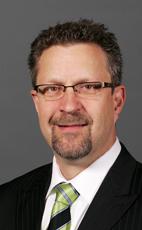Mr. Speaker, it has been written that to everything there is a season. In my political career, everything came together some 17 years ago when I was first elected to the House of Commons. While I can assure members of my good health and although I still feel honoured and privileged to be a member of Parliament, I have decided I will not seek re-election when Canada next goes to the polls.
I was 36 years old when this adventure started, and all four of our children were still at home. Now they are all grown up, married, and Deb and I have 10 grandchildren. I vowed I would leave politics one day with the one thing that mattered most when I entered into it: the love and respect of those closest to me. It is thanks mostly to my wife, Deb, who is the anchor and love of my life, that this will happen. It is my life's greatest achievement.
I was elected first as a Reformer and quickly learned that listening to and serving the public had its own unique rewards. My constituents are passionate about their issues and politics and working with them has been an ongoing inspiration and motivation. They are wonderful, commonsense people and I will forever be grateful for their encouragement and support.
One of the best parts of political life is the friends we make along the way. A whole new world of people we would never have met otherwise have become near and dear to us. Not just political partisans either, but interesting, thought-provoking folks from all kinds of backgrounds, religions and regions. Like the rock solid friends we have always had in our home town, these new friends have become an integral part of our lives. We are richer and better people for their loyal companionship.
Of course serving in cabinet has been an exceptional experience. I will always be grateful to the Prime Minister who went out of his way to assure me that he not only wanted me to be a minister, but he was confident I could do the job. He appointed me right on the heels of my serious encounter with cancer, and his encouragement to me at the time was, “Don't let people tell you that you can't still contribute – don’t let them push you aside”. Cancer survivors need to hear words like that and they need to know in their heart that they are true. I thank the Prime Minister for those words. My health has been good ever since.
Throughout it all, my staff have been exceptional. The workload, the high expectations and public pressure on these people is enormous, but they have consistently risen to the occasion and they have all served Canada with distinction. Any good reputation I may have garnered over the years is due in large part to their efforts. The same can be said for so many of the professional civil servants I have worked with in three separate ministries, and the Clerk and her staff are on that list as well. Our country is fortunate to have these people toiling on our behalf.
In all ways, large and small, my experiences these past 17 years have reinforced the conviction that Canada is one of the most blessed countries in the world. Full of abundant natural resources and a generous, stoic people, consistently peaceful and generally prosperous, we are among history's most fortunate. What a great country.
One day, and perhaps soon, I will leave this place and my role here behind. I will leave with mixed feelings, because I love serving our country and its people. But for everything there is a season, and I am convinced this is the right time for me and Deb to seek out the next, wonderful purpose that God has in mind for us.
I thank one and all for the honour and privilege of serving together in the common service of our constituents and country.

